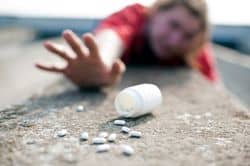Inpatient Detox Centers
 A complete and effective detox is essential before treatment for an addiction can commence. This important first step in treatment helps the body of an addict return to a normal state. The most important part of an effective detox program, besides removing the substance from an addict’s system and treating any underlying physical or mental health condition, is the management of withdrawal symptoms. These can manifest themselves after the addict’s substance of choice hasn’t been taken for as little as two hours, depending on the drug. Some of the symptoms of withdrawal can continue to be felt for up to a month with certain drugs such as heroin, while others can last as little as two days. The length of time that withdrawal takes is greatly influenced by the amount of substance that the addict was taking and the length of time it was taken. The usual steps of drug detoxification are evaluation, stabilization and leading the patient into treatment. The traditional approach in an inpatient detox center usually includes compassionate counseling to help cope with discomfort and to prepare addicts for the road to recovery. The long-term treatment chosen by the patient can be on an inpatient or outpatient basis, depending on the severity, economic situation and personal preferences of the patient.
A complete and effective detox is essential before treatment for an addiction can commence. This important first step in treatment helps the body of an addict return to a normal state. The most important part of an effective detox program, besides removing the substance from an addict’s system and treating any underlying physical or mental health condition, is the management of withdrawal symptoms. These can manifest themselves after the addict’s substance of choice hasn’t been taken for as little as two hours, depending on the drug. Some of the symptoms of withdrawal can continue to be felt for up to a month with certain drugs such as heroin, while others can last as little as two days. The length of time that withdrawal takes is greatly influenced by the amount of substance that the addict was taking and the length of time it was taken. The usual steps of drug detoxification are evaluation, stabilization and leading the patient into treatment. The traditional approach in an inpatient detox center usually includes compassionate counseling to help cope with discomfort and to prepare addicts for the road to recovery. The long-term treatment chosen by the patient can be on an inpatient or outpatient basis, depending on the severity, economic situation and personal preferences of the patient.
National Survey on Drug Use and Health
According to the National Survey on Drug Use and Health, drug abuse and addiction costs employers across the country over $122 billion a year in loss of productivity and an additional $15 billion is spent on related health insurance costs.
Some of the drawbacks of an outpatient versus an inpatient detox program are the risk of relapse due to the ability to get drugs and/or alcohol, the patient’s propensity to choose not to keep appointments for detoxification and failing to detoxify completely. Inpatient detox centers have a higher completion rate than outpatient ones, although this is not an indication of long-term sobriety success rates. Outpatient detoxification is not safe for those at risk for potentially life-threatening complications of withdrawal, such as delirium tremens, or for patients with medical conditions associated with their addiction, such as pancreatitis, cirrhosis or gastrointestinal bleeding. It is also not an appropriate means of treatment for anyone who is considered suicidal or homicidal, who has severe or medically complicated alcohol withdrawal, who has disruptive or adverse family conditions, who has living or job situations that are problematic or who is unable to travel to the detoxification center. An inpatient detox center can also provide the material to make the transition to a long-term treatment plan, no matter if the patient chooses to be treated on an in- or outpatient basis.
In a figure provided by the National Survey on Drug Use and Health, illegal use of prescription drugs is believed to have risen over 500 percent since 1990.
Some common symptoms of withdrawal that detoxification programs help manage include:
- Restlessness
- Irritability
- Insomnia
- Headaches
- Anxiety
- Depression
- Poor concentration
- Social isolation
- Sweating
- Palpitations
- Muscle tension
- Tightness in the chest
- Difficulty breathing
- Tremors
- Vomiting, nausea and/or diarrhea
Some more dangerous symptoms that need to be carefully managed within a detoxification program, as they can result in death, include:
- Hearts attacks
- Strokes
- Hallucinations
- Delirium tremens
- Seizures
 Failure to undergo detoxification in an inpatient detox center can put the patient at risk of an overdose, which can result in death by not having the above symptoms treated adequately and resuming use of the substance in the hopes of alleviating the symptoms of withdrawal.
Failure to undergo detoxification in an inpatient detox center can put the patient at risk of an overdose, which can result in death by not having the above symptoms treated adequately and resuming use of the substance in the hopes of alleviating the symptoms of withdrawal.
According to the National Survey on Drug Use and Health, marijuana is the most commonly abused substance after alcohol. Marijuana is followed by prescription painkillers, cocaine and hallucinogens.
Some of the disadvantages of inpatient detoxification are the relatively higher costs compared with outpatient alternatives, as well as the possibility that this type of treatment might remove the patient’s sense of personal responsibility and encourage an unnecessary level of dependence on treatment center staff. The advantages of reduced access and contact with the abused substance, the reduced or nonexistent contact with a person’s circle of drug- or alcohol-using friends and the constant help and assistance available by the inpatient detox center staff usually outweigh the aforementioned disadvantages when making the decision about whether to take the inpatient or outpatient route. If you would like to discuss your options for treatment and the different centers available to you, call us on our toll-free hotline, 1-888-968-9816 Who Answers? . We’re available 24/7 for any questions you may have regarding your recovery or that of a loved one.
Choosing an inpatient detox center right for your own circumstances, along with the right long-term follow-up treatment, can make a significant difference in one’s recovery process. Luxury and private treatments are available for anyone wanting to make these features a part of his or her program. There are also treatments that incorporate a religious component, wilderness programs, and traditional medical facilities available to you. Reach out by calling us today, and we can help steer you in the right direction with your journey.
